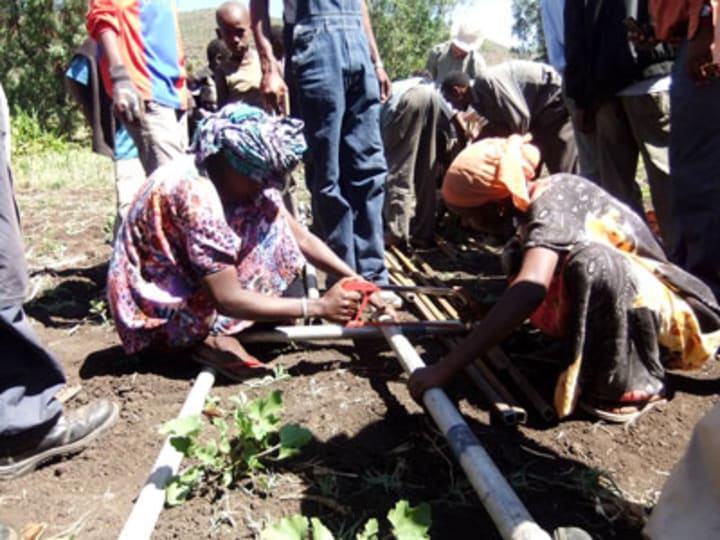
Today, one in every 10 people in the world still don’t have access to safe water. Across sub-Saharan Africa, the Indian subcontinent and in regions of Oceania, millions are still denied this most basic of human needs.
But an innovation that costs just $2,000 per well is changing lives in Angola, Ethiopia and Ghana. World Vision has partnered with Water4 Foundation to drill rigs and install pumps in a way that allows villagers to start small businesses providing access to safe water.
“We’re finding that people love the idea that you can get a well for $2,000 instead of $15,000,” Randy Strash, World Vision’s water, sanitation and hygiene strategist, told Devex.
Over the next three years, World Vision plans to bore 7,000 wells in eight countries, reaching a million villagers.
“Our goal is to raise $20 million for this program over the next three years, and we have raised around $7 million,” said Strash.
The project utilizes satellite imagery, infrared and geological surveys to find water available through shallow drilling. Once water is located, Water4 uses low-tech drilling systems.
Some of the materials needed to install a well can actually be bought at local hardware stores, said Strash, because the system uses plastic PVC to pump water out.
“You can actually manufacture the augers and drill bits in-country,” said Strash.
In countries where the project is implemented, communities interested in having wells just need to approach World Vision, said Strash, and then let the organization look for donors to help them.
“They indicate, ‘Yes, we’re interested.’ Then we look for a donor to purchase the equipment, we hire the crews to drill and we commission them to drill in certain areas,” said Strash. “The idea is to train local artisans to assemble the pumps, so they’re built in-country.”
What’s good about the project, according to Strash, is that the equipment can be sold to crew members who wish to start their own business.
“We offer them the opportunity to purchase the equipment and start a business with it,” said Strash. “It becomes a business and they can drill these wells on contract. They can build the pumps themselves and you get small multiple businesses working. You don’t have to worry any more, because it’s self-supply concept.”
For this project, World Vision has partnered with private individuals, corporations and foundations. At the time of writing, the project has not received public grants.
And any country can adopt this cheap innovation.
“Our partner Water4 has developed a system so that any country that wants to start can order two containers full of equipment, tools, parts and supplies,” said Strash.
The cost of the materials per country would amount to half a million dollars.
“Each rig could drill about 30 to 40 wells a year. If you had 12 rigs, times 35, that would be 420 wells per year for that container load,” he said.
Read more development aid news online, and subscribe to The Development Newswire to receive top international development headlines from the world’s leading donors, news sources and opinion leaders — emailed to you FREE every business day.




